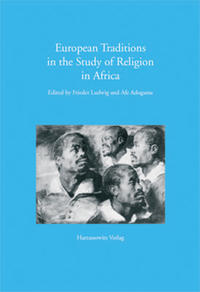
This volume comprises case studies of five centuries of European encounters with and imaginations of Africa encompassing her triple religious heritage: African Traditional Religions, Christianity and Islam. The introductory chapters outline the challenges and present overviews; some of them also analyze the early accounts of European travelers and missionaries. The following contributions examine the lasting legacy of the European Enlightenment in employing an ambivalent language of human equality and universalism, while in actual fact consigning Africa to an inferior position. It has been difficult for western scholars to divorce themselves wholly from the perceptions thus established. However, there have been quite different approaches. This is indicated in the papers discussing the role and impact of influential European academics (scholars of religion, theologians, historians and social scientists) during the colonial and postcolonial period. Other contributions examine specific institutional centers of African religious studies in Europe. The concluding chapters critically assess European approaches and their use for the study of religion in Africa from an African perspective.